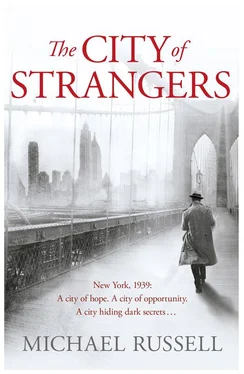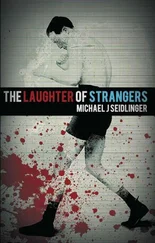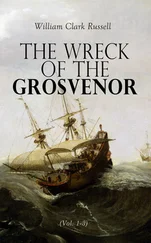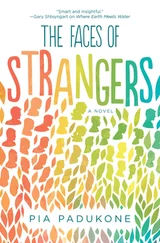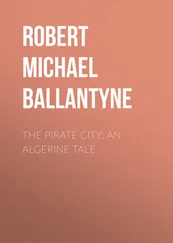‘I’d say so. But what do I do about him talking to me?’
Superintendent Gregory had given Sergeant Gillespie his orders. He wasn’t asking to have a conversation about it. ‘You tell him to shut up too.’
‘What about the Gate?’ asked Stefan quietly but insistently.
‘Would you like me to write it down, Sergeant?’
‘He’s got friends there. He’s been with them since the day after the murder. He’s been shut in a hotel room with some of them since he agreed to come back to Ireland. Wouldn’t you want to know what he’s been saying?’
‘I’m sorry, Stevie, I didn’t realise Ned told you to take over.’
‘It’s a simple question, sir.’ Stefan allowed his irritation to show.
Terry Gregory walked forward until he was only inches from him. For the first time he spoke very quietly. The whiskey was strong on his breath.
‘You might not have much of a job down there, Sergeant, but if you screw this up, you’ll be sitting on an island off the Atlantic till the day you draw your pension. Nobody wants to know what you think. Now fuck off.’
He spun round and strode rapidly across the grass. The Special Branch detectives followed him. There was only the sound of the sea breaking slowly, rhythmically on the rocks below. Dessie MacMahon too started back towards the house.
Stefan was still for a moment. It was a peaceful place. The thought of what had happened barely a week ago seemed to collide in his mind with the image of a small boy playing in the garden, running down to the sea. He looked at the boarded-up French windows and remembered a photograph on the bloodstained wall at Herbert Place. He had barely noticed it, yet it had stayed in his head; a boy, freckled, in shorts and a white shirt and sandals, smiling by the same big windows, wide open then, pulling a wooden cart full of sand.
Stefan heard the buzz of the plane, searching for any signs of Leticia Harris’s body. He turned and walked on after Dessie.
*
It was just starting to get dark as Stefan Gillespie walked through the fields on the western side of the farm at Kilranelagh, across the Moat Field towards the woods that abruptly fell down the steep escarpment on the far side of the townland. The sheep were thick-coated and filthy with the winter’s rain; the grass was bare and poached, still waiting for the spring flush to show. He noted a ewe hobbling painfully, another down on her knees trying to find some grass worth eating. He had meant to help his father with the foot rot at the weekend; he wouldn’t be here.
He could hear the sound of children’s voices, and he altered his course down the slope towards the high mound that sat just beyond the corner of the field, a cluster of trees rising out of the woods, higher than everything else around it, looking down at the narrow gash of rock and earth and scrappy hazel woodland that was the steep-sided valley they called Moatamoy, after the mound itself.
It was no more than a smooth, round hillock, with a flat top full of twisted trees and brambles and ivy. Eight hundred years ago the top had been surrounded by a wooden palisade. A Norman village of grass-roofed, wattle-and-daub-and-stone houses had clustered at the corner of the field below it, indistinguishable from the grass-roofed, wattle-and-daub-and-stone houses of the Celts the palisaded motte was there to protect its inhabitants from. The Anglo-Normans who had lived here had sometimes fought the people around them, sometimes traded with them, sometimes killed them, sometimes married them, until eventually they had been absorbed into their surroundings so completely that they became, in the words that would always define them, níos Gaelaí ná na Gaeil iad féin, more Irish than the Irish.
Now the sheep grazed where the village had been, but the motte was still a castle, at least in the minds of the children who played there.
Stefan could pick out the voices as he climbed over the wire fence into the ditch that surrounded the motte. Tom’s first of all, shrill and enthusiastic and, it couldn’t be denied, with more than a hint of bossiness about it when the game was his game. He could hear the voices of the Lessingham children, Alexander who was seven, Jane who was ten, and the voice of the Lawlors’ son, Harry. Stefan started up the slope of the mound and found himself grabbed forcefully from behind; an arm was round his neck, holding him.
‘Surrender!’ The words hissed into his ear.
‘I surrender! Just don’t choke me!’
As the arm released him he turned, coughing and spluttering, to see a woman laughing at him.
‘Be quiet,’ she whispered, ‘and we’ll see if we can creep up on them.’
He nodded and smiled. He was used to it. For a moment the woman looked at him, and he looked at her. They were standing very close among the trees. He bent forward and kissed her lips. It was fond rather than passionate, but its familiarity told a deeper story.
At thirty-four Valerie Lessingham was a year older than Stefan. She lived with her children in the big house across the valley from the Kilranelagh farm. Her husband, Simon Lessingham, was an officer in the British Army, serving with his regiment in East Africa. He had been away for more than two years; absence had not made Valerie’s heart grow fonder. There had been cracks in their marriage for a long time; the fact that he was away so much was an excuse not to face them, as it was an excuse not to face other things. Like the cracks in the crumbling house they lived in, and the bigger cracks in the management of the estate that surrounded it, draining money out year after year and bringing nothing back. Lack of attention wasn’t a solution to those problems either.
Neither Valerie nor Stefan had looked for what had happened quite suddenly between them. They had come together for the simple reason that their children played together; their children were more the entire focus of their lives than they cared to admit. And so it happened.
Valerie walked up the slope ahead of him. She had a head of yellow hair to her shoulders. She was thin and tall, and strong enough to stand beside the men who worked on the estate and do the same job when she needed to. The clothes she was wearing, as they often were, had come out of the back of her husband’s wardrobe.
Stefan watched her, climbing gracefully and quietly up the slope. He was aware how much he liked her. She had the carelessness that somehow went with her class, even about their relationship, but she had a well of kindness that often didn’t. Whenever he thought about her, she was laughing. She laughed with everyone, but he sometimes felt that her laughter only really came from her heart with the children, and the children had come to include Tom Gillespie, more often than not.
The track across the fields from Kilranelagh to Whitehall Grove had become well-trodden by the children over the last two years, and the woods that filled the valley between the farm and the estate seemed to have become their world. At the moment, after the arrival of the film The Adventures of Tom Sawyer at the small cinema in Baltinglass three weeks ago, it served as the countryside around St Petersburg, Missouri; the tiny stream at the bottom of the valley, on the other side of the motte, was the Mississippi River. The voices Stefan and Valerie could hear, floating down from the top of the mound, were now those of Tom Sawyer, Huckleberry Finn, Becky Sharp, Joe Harper and, intermittently, of Injun Joe, Muff Potter and Aunt Polly too.
‘I was at Garda Headquarters today,’ said Stefan.
‘Be quiet, Stefan,’ she hissed again.
‘It sounds mad, but I’ve got to go to America.’
She turned round, glaring, holding a finger to her lips.
‘You can tell me later, darling!’ The last word meant nothing very much; it was simply the word Valerie called everyone she cared about.
Читать дальше
